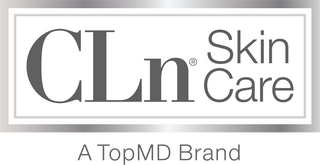
Stepping into the skincare aisle can be overwhelming, with labels like "hypoallergenic," "natural," "clean," and "organic" vying for attention. Each promises healthier skin and a more mindful approach to beauty, but what do these buzzwords actually mean? Are they genuine indicators of quality, or just clever marketing?
This article demystifies these terms, cuts through the marketing jargon, and provides the knowledge needed to make informed choices for a skincare routine. Discover the truth behind these labels and learn how to truly care for skin the right way.
What Do These Buzzwords Mean?
Skincare labels can guide consumers toward products that align with their health and ethical values. Understanding what each term means helps in making better choices, especially for those with sensitive skin or specific health concerns. However, it's important to look beyond the buzzwords and understand the ingredients and their effects.
Hypoallergenic: Products labeled as hypoallergenic are designed to minimize the risk of allergic reactions. However, "hypoallergenic" doesn't guarantee that a product won’t cause allergies; it simply means the product has fewer known allergens.
Natural: This term suggests that the product's ingredients come from natural sources, such as plants, minerals, or animals. However, "natural" isn’t regulated, so products can contain both natural and synthetic ingredients.
Clean: Clean skincare products are free from ingredients considered harmful or toxic, such as parabens, sulfates, and synthetic fragrances. While "clean" is not strictly regulated, it generally implies a focus on safer, more sustainable ingredients.
Organic: Organic skincare products contain ingredients grown without synthetic pesticides, fertilizers, or genetically modified organisms (GMOs). Certification from bodies like USDA ensures adherence to these standards.
Phosphate-Free: Phosphates, used in skincare for their emulsifying properties, can harm the environment, particularly water ecosystems. Phosphate-free products avoid these chemicals, making them more eco-friendly.
Non-Comedogenic: This term means that the product is formulated not to clog pores, making it suitable for those with acne-prone skin.
Fragrance-Free: Fragrance-free products do not contain synthetic fragrances, which can irritate sensitive skin. However, they might still contain natural scents from the ingredients themselves.
Sulfate-Free: Sulfates are cleansing agents that can strip the skin of natural oils, leading to dryness and irritation. Sulfate-free products use gentler alternatives, making them better for sensitive skin.
Paraben-Free: Parabens are preservatives used to extend the shelf life of products. Paraben-free products avoid these chemicals due to concerns about their potential link to hormone disruption.
Cruelty-Free: Cruelty-free products are not tested on animals, a label important for consumers concerned about animal welfare.
Vegan: Vegan skincare products do not contain any animal-derived ingredients, appealing to those following a vegan lifestyle or seeking ethical skincare options.
Keeping Your Skincare Regimen Toxic-Free: Top Tips
Navigating the world of skincare can be challenging, but maintaining a toxic-free regimen is necessary for long-term skin health. Here are some tips to help you make safer, more informed choices:
- Read Ingredient Lists: Don’t just rely on the labels. Take a closer look at the ingredient list to spot potentially harmful chemicals.
- Research Brands: Choose brands with a commitment to transparency and high standards for their formulations.
- Patch Test New Products: Always patch test new products to ensure they don’t cause any adverse reactions.
- Opt for Certified Products: Look for certifications like USDA Organic or EWG Verified to ensure the products meet specific standards.
- Consult Professionals: When in doubt, consult a dermatologist to help you choose the best products for your skin type and concerns.
A Trusted Name in Safe Skincare
When it comes to safe and effective skincare, CLn Skin Care sets the gold standard. Developed by Dr. Azam Anwar, a renowned cardiologist, CLn was born from his personal battle with MRSA cellulitis. Dr. Anwar’s quest for a superior skin cleanser led to the creation of CLn Skin Care, a brand dedicated to protecting and nurturing compromised skin.
What makes CLn products 100% safe for adults and children alike is their meticulous formulation. All CLn products are free from parabens, sulfates, triclosan, and other harmful chemicals, ensuring they are non-toxic and safe for all skin types. This makes them suitable even for the most sensitive skin, including infants over six months old. CLn’s commitment to safety and efficacy is backed by extensive clinical research, which has demonstrated their effectiveness in maintaining healthy skin without causing dryness or irritation.
Embrace Safe Skincare with Confidence with CLn Skin Care
Deciphering skincare labels is essential for maintaining a toxic-free skincare regimen. Understanding terms like hypoallergenic, natural, clean, organic, and more helps you make choices that benefit your skin and overall health.
With scientifically-backed formulations and a commitment to safety, CLn provides the care your skin deserves. Transform your skincare routine with CLn Skin Care – where science meets safety for healthier, happier skin.
